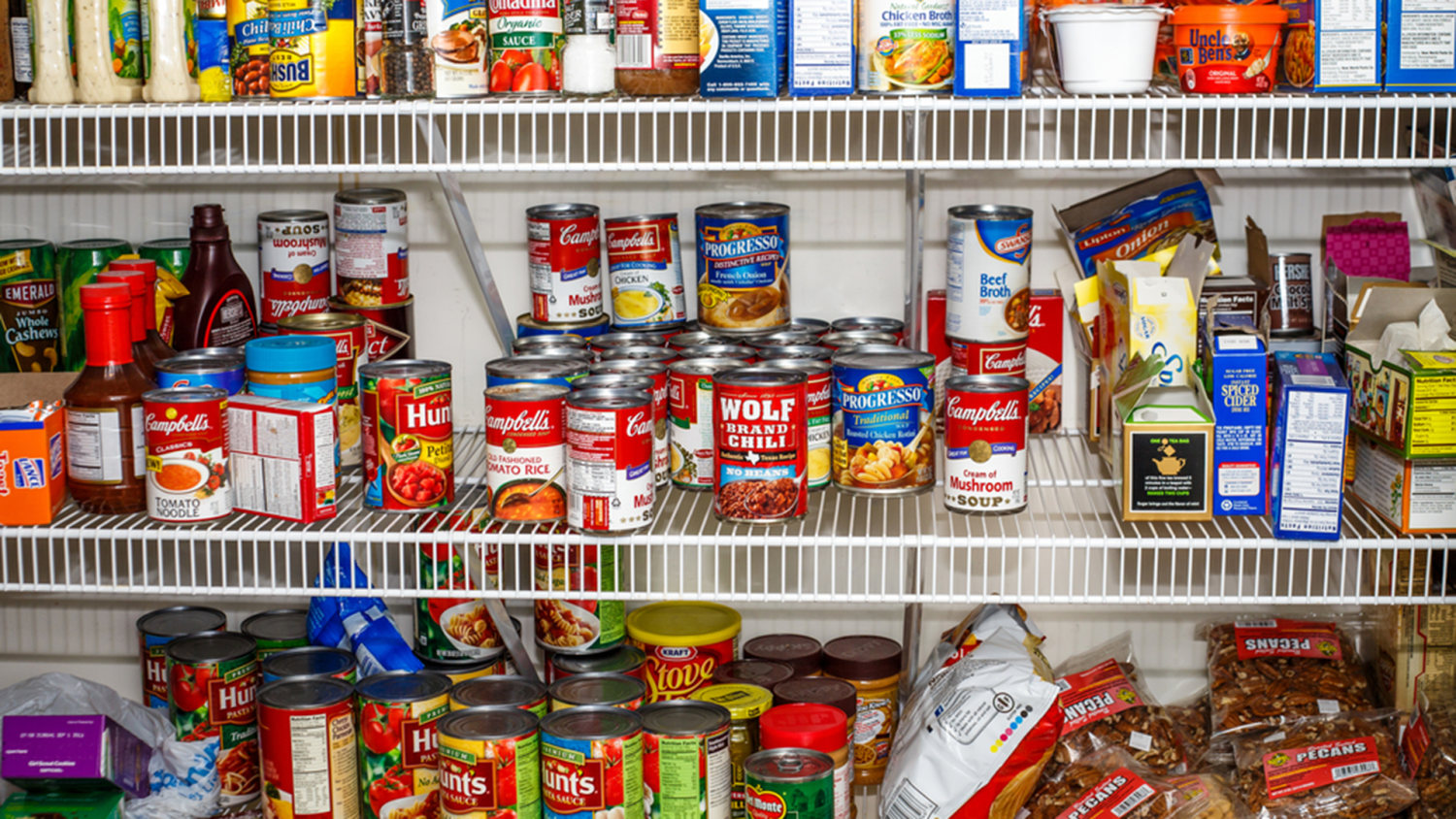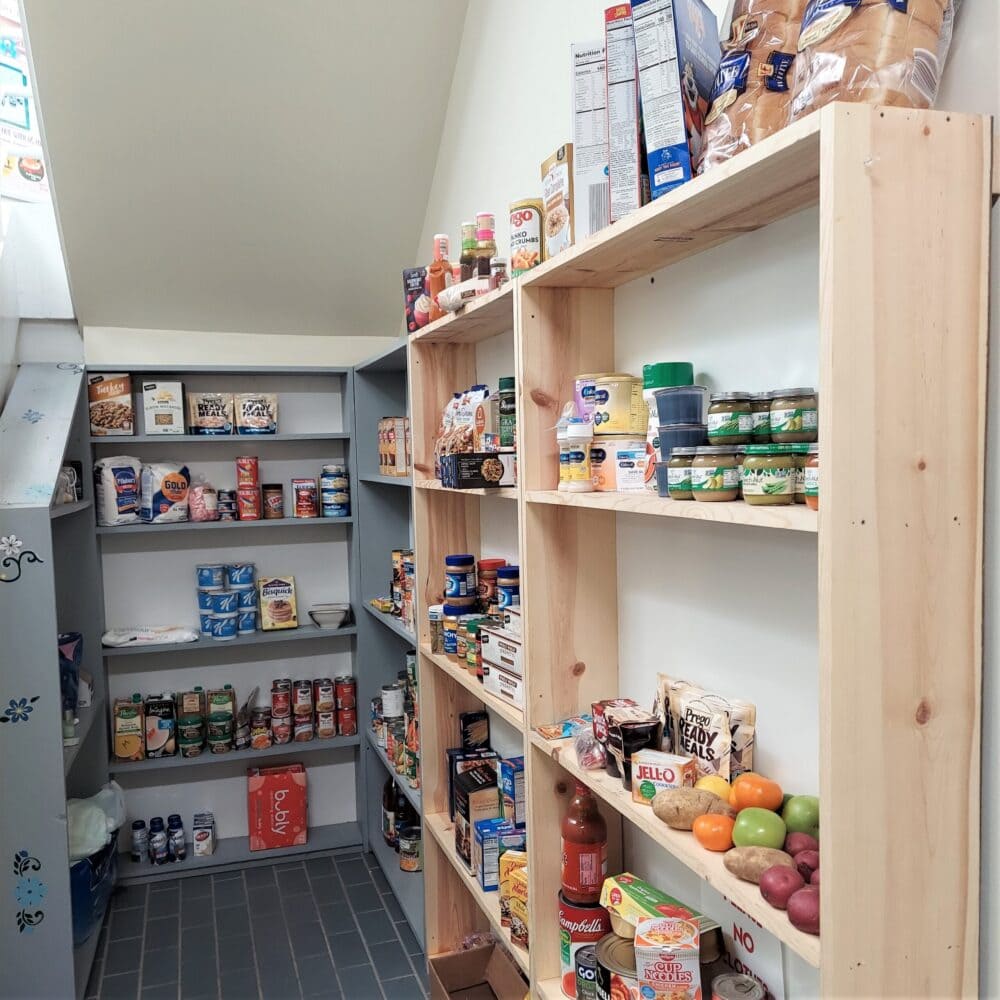Find out Just How to Donate to Food Pantry Lockhart and Support Households in Need
Find out Just How to Donate to Food Pantry Lockhart and Support Households in Need
Blog Article
Why Sustaining Your Local Food Cupboard Is Essential for Helping Those in Need
The relevance of supporting neighborhood food cupboards can not be overstated, especially in the context of food insecurity, which impacts an alarming number of people and households within our neighborhoods. As we check out the complex duty of food kitchens, it comes to be apparent that their impact expands much beyond just dispersing food.
Recognizing Food Insecurity
Food insecurity affects roughly 10.5% of families in the United States, showing a significant public health and wellness concern that goes beyond mere cravings. It describes the lack of consistent access to enough food for an active, healthy life. This condition can result in a series of unfavorable end results, consisting of bad wellness, increased healthcare expenses, and decreased academic performance amongst children.
The root causes of food instability are multifaceted, usually stemming from financial factors such as hardship, joblessness, and underemployment. Geographical place can likewise play an important function, with food deserts-- locations with minimal access to affordable and healthy food-- aggravating the issue - Food Pantry Lockhart. Additionally, systemic factors, including social and racial injustices, add to the disproportionate effect of food instability on marginalized areas
Attending to food insecurity is not merely about enhancing food supply; it needs an extensive approach that encompasses financial stability, education and learning, and neighborhood assistance. Food insecurity not just impacts private wellness but also has more comprehensive effects for societal health and wellness and productivity. Recognizing its intricacy is crucial for creating effective interventions and cultivating lasting options that make certain all people have trustworthy access to nourishing food.
The Role of Food Pantries
Regional food pantries work as important lifelines for individuals and households dealing with food instability. They provide essential food products to those who may struggle to afford appropriate nourishment because of financial hardship, joblessness, or unforeseen scenarios. By distributing food at no charge, these companies help relieve hunger and protect against the negative health and wellness influences linked with inadequate diets.
Food pantries often partner with neighborhood ranches, food store, and area organizations to source a selection of nutritious food things, including fresh produce, dairy products, and healthy proteins. This cooperation makes certain that kitchen clients receive not only food but likewise much healthier choices that add to general well-being.
In addition, food cupboards work as community hubs, fostering connections amongst homeowners and providing a sense of self-respect to those in demand. Numerous pantries provide additional sources, such as nourishment education and learning and references to social solutions, aiding customers browse their obstacles more effectively.
Basically, food pantries play a complex duty in combating food insecurity. They not just address instant appetite but additionally equip individuals and family members to boost their situations, thus promoting community resilience and cohesion.

Benefits of Supporting Food Pantries

Supporting food pantries not just nourishes those in requirement but also enhances the material of the neighborhood. By providing essential food resources, food cupboards alleviate cravings and lower food insecurity, which is critical for the health and wellness and wellness of families and people. Accessibility to healthy food adds to improved physical health, better academic outcomes for kids, and improved psychological wellness, consequently fostering an extra efficient and engaged area.
Additionally, sustaining food cupboards advertises social cohesion. These companies function as hubs for community engagement, bringing with each other volunteers, contributors, and receivers in a common objective to deal web with appetite. This cooperation can break down barriers, foster understanding, and construct partnerships amongst diverse neighborhood participants.
In addition, contributions to food cupboards, whether in the type of food, funds, or time, stimulate the local economic situation. Many food cupboards prioritize sourcing from neighborhood producers, hence supporting neighborhood agriculture and companies. This creates a cycle of assistance that profits not only those in demand however the area overall.
Exactly How to Obtain Included
Interaction with food pantries can take lots of forms, allowing groups and individuals to make a significant influence in their communities. Monetary donations are likewise indispensable, as they make it possible for food kitchens to purchase fresh produce and vital products.
Volunteering your time is one more impactful way to sustain regional food kitchens. Lots of organizations count on volunteers for arranging, packaging, and distributing food. This hands-on participation not only aids the pantry but likewise fosters a sense of neighborhood. On top of that, consider organizing food drives within your institution, area, or office team to increase understanding and collect sources.
Collaborations with regional companies can even more enhance support for food cupboards. Organizations can host contribution events or add a portion of their sales to the pantry. Spreading out the word with social media and personal networks aids to raise exposure and motivate others to add. By taking these groups, people and actions can considerably strengthen the efforts of local food cupboards view and assist those in need.
Area Influence and Connection
Recognizing the extensive impact of food cupboards on area health is necessary for fostering a spirit of connection and collaboration. Food kitchens serve not only as crucial sources for those encountering food insecurity yet likewise as hubs for area involvement. They combine varied teams-- volunteers, benefactors, and clients-- producing a setting where people can attach and sustain one an additional.
The influence of food pantries extends past simple arrangement of food; they function as a catalyst for social cohesion. By taking part in pantry initiatives, area participants can create partnerships that transcend socioeconomic barriers. This network of assistance aids to take down the preconception often linked with food help, fostering an environment of approval and understanding.
Furthermore, food pantries often team up with regional companies, institutions, and services, enhancing their reach and effectiveness. These collaborations improve neighborhood durability and urge a cumulative reaction to food instability. As people unite in their initiatives to sustain neighborhood food cupboards, they grow a feeling of common objective and obligation, enhancing the idea that everyone has a function to play in ensuring that no one goes starving. Eventually, sustaining food pantries enhances the textile of the area overall.
Verdict
Sustaining local food kitchens is crucial in combating food instability and enhancing the well-being of susceptible populations. Engagement with food cupboards cultivates community connections, advertising social communication and equity.

Report this page